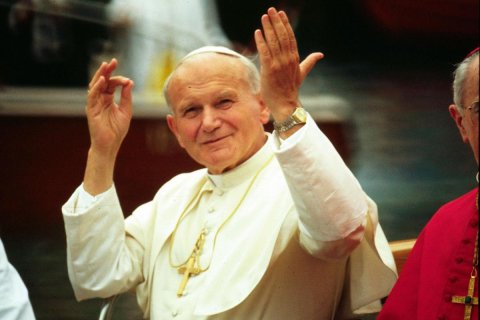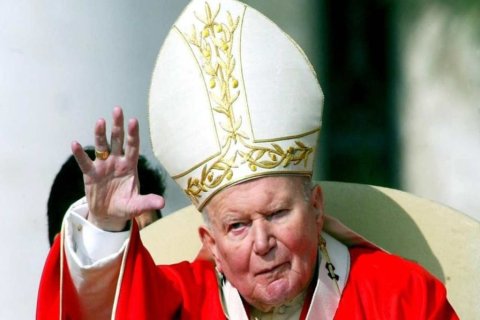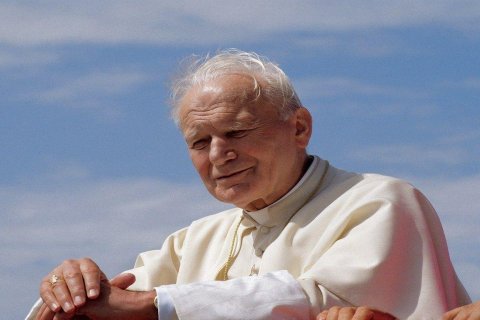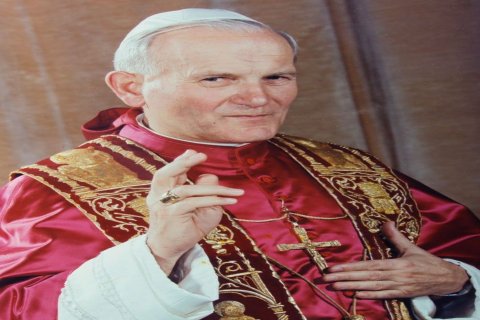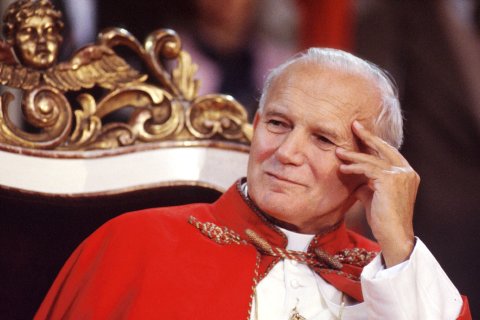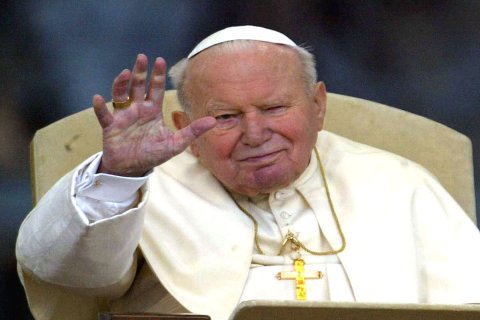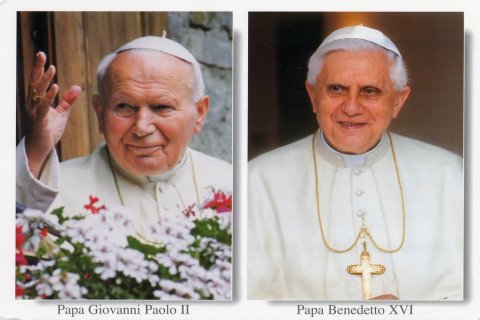Papa Giovanni Paolo II
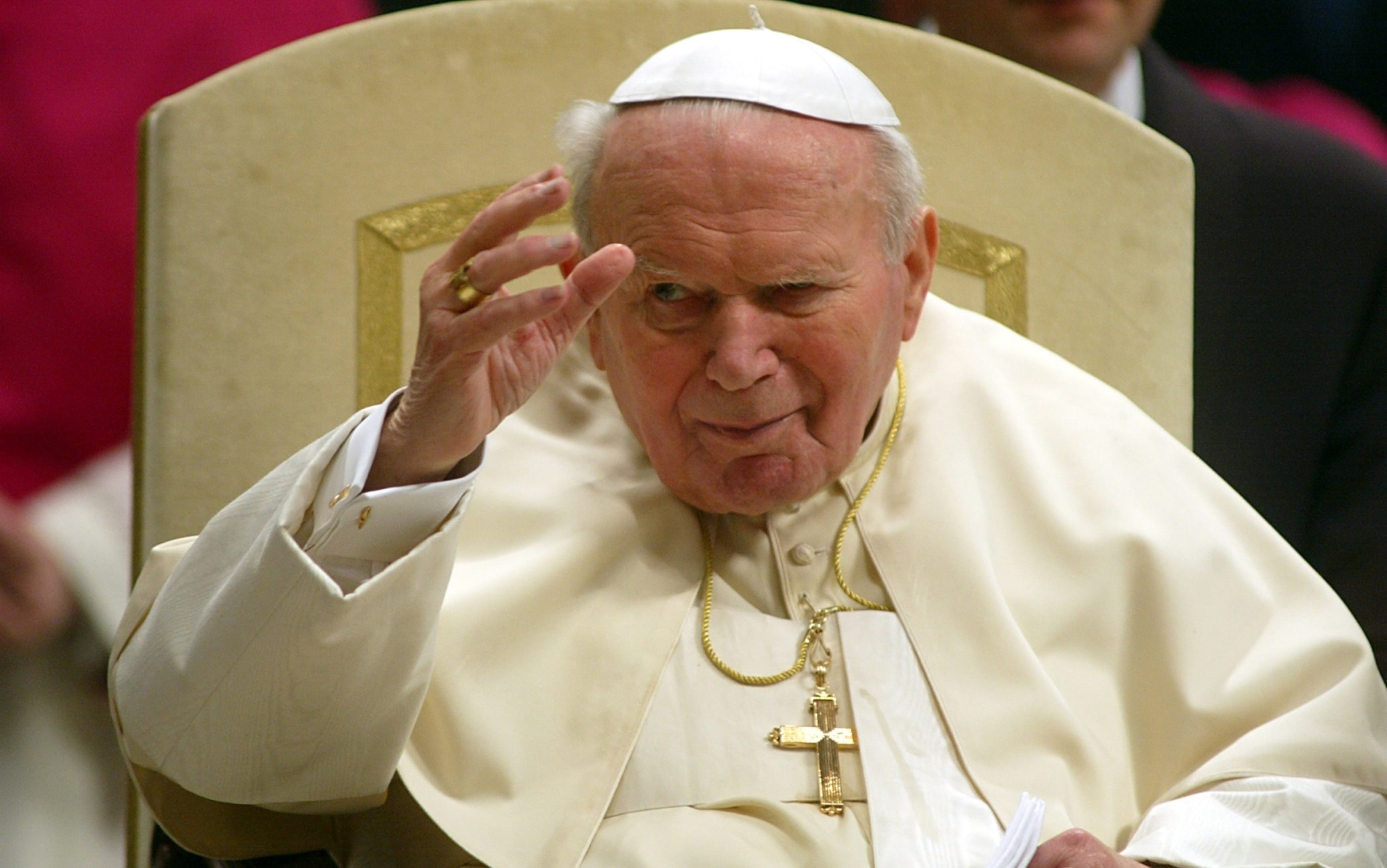
Title: Pope John Paul II: A Legacy of Faith, Leadership, and Sainthood
Introduction:
Pope John Paul II, born Karol Józef Wojtyła, was a beloved and influential figure who led the Catholic Church from 1978 until his death in 2005. A man of deep faith and charisma, he made significant contributions to the spiritual, political, and cultural landscape of the world. This article explores the life, accomplishments, and enduring legacy of Pope John Paul II, highlighting his role as a celebrity of global proportion and his profound impact on history.
Early Life and Vocation:
Karol Wojtyła was born on May 18, 1920, in Wadowice, Poland. He grew up in a deeply Catholic family and displayed a strong inclination towards spirituality and learning from a young age. While studying philosophy and theology at the Jagiellonian University in Krakow, he felt a profound calling to the priesthood. Despite the challenges posed by the Nazi occupation of Poland during World War II and the subsequent Communist regime, Wojtyła persevered in his studies and was ordained as a priest in 1946.
Rise to Prominence:
Father Wojtyła quickly distinguished himself as a gifted theologian, intellectual, and pastoral leader. He became a university professor, published scholarly works, and actively engaged in the intellectual and cultural life of Poland. In 1958, he was appointed an auxiliary bishop of Krakow, and in 1964, he became the Archbishop of Krakow. Throughout this period, Wojtyła's charisma, wisdom, and unwavering commitment to the Church and to social justice earned him widespread recognition and admiration.
Papal Election and Global Influence:
In 1978, following the death of Pope Paul VI, Cardinal Karol Wojtyła was elected to the papacy, taking the name John Paul II. His election was a historic moment, as he became the first non-Italian Pope in over 450 years. John Paul II brought a fresh perspective to the Vatican and quickly established himself as a dynamic and transformative leader.
One of John Paul II's most significant contributions was his role in the fall of communism in Eastern Europe. Through his unwavering support for human rights, freedom of religion, and social justice, he inspired millions of people behind the Iron Curtain to resist oppression and pursue democratic reforms. His famous words, "Be not afraid," became a rallying cry for those seeking liberation from totalitarian regimes.
Peacemaker and Ecumenism:
Pope John Paul II tirelessly promoted peace and dialogue among nations and religions. He made numerous diplomatic visits around the world, fostering understanding and cooperation between different cultures and faiths. He also played a pivotal role in ecumenical efforts, reaching out to other Christian denominations and fostering unity and cooperation. His commitment to interfaith dialogue and his emphasis on the commonalities among different religions earned him respect and admiration from leaders and followers of various faiths.
Pilgrimage and Canonization:
John Paul II was known for his extensive travels, often referred to as "pilgrimages," which took him to every corner of the globe. Through these visits, he sought to connect with people from all walks of life, spread the message of love and compassion, and promote understanding and unity among nations. His ability to connect with people on a personal level, regardless of their background or beliefs, made him a beloved figure across the world.
In 2014, Pope John Paul II was canonized as a saint by Pope Francis, recognizing his outstanding contributions to the Church and his enduring legacy as a spiritual leader and advocate for peace and justice. His canonization drew millions of pilgrims to Rome and was celebrated as a testament to his enduring influence and the impact he had on the lives of countless people.
Legacy and Cultural Impact:
Pope John Paul II's pontificate was marked by significant changes and developments within the Catholic Church, including the promulgation of the new Catechism of the Catholic Church, the World Youth Days, and the emphasis on the role of the laity in the Church. He also initiated the beatification and canonization processes for numerous individuals, recognizing their contributions to the faith and inspiring future generations.
Beyond his religious leadership, John Paul II became a global celebrity, transcending religious and cultural boundaries. His charisma, his ability to communicate with people from all backgrounds, and his commitment to social justice made him an iconic figure who captured the attention and admiration of millions worldwide. His impact on culture, politics, and history cannot be overstated, as he left an enduring legacy of faith, leadership, and inspiration.
Conclusion:
Pope John Paul II was a towering figure in the history of the Catholic Church and the world. His pontificate was marked by transformative changes, spiritual renewal, and a tireless commitment to peace, dialogue, and human dignity. As a celebrity of global proportion, he touched the lives of millions and left an indelible mark on the cultural, political, and religious landscape of the world. His canonization as a saint further solidified his status as an exemplary spiritual leader and a beacon of hope and inspiration for generations to come.

